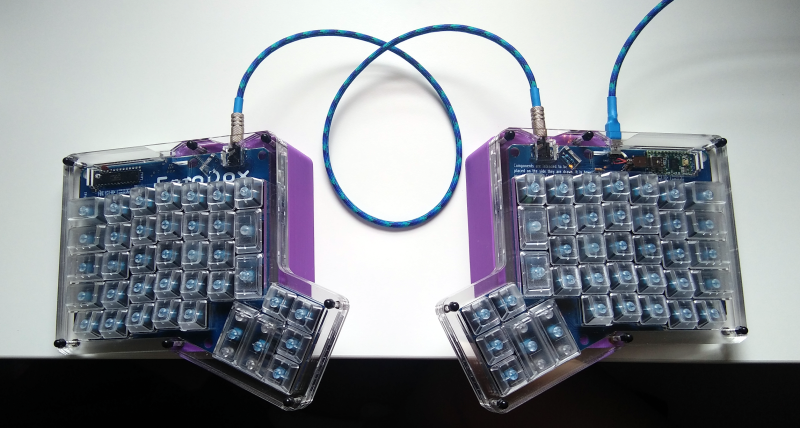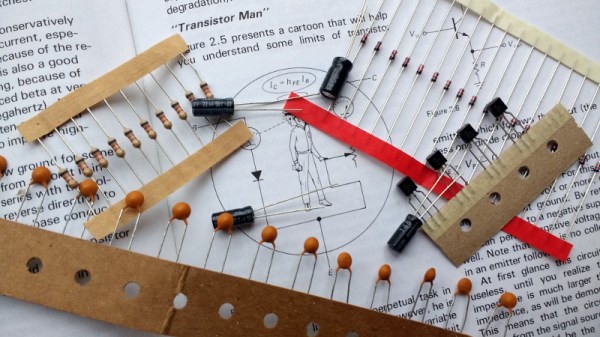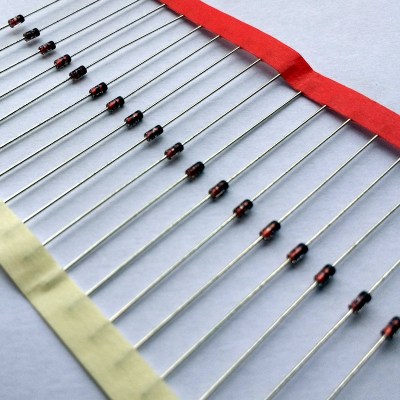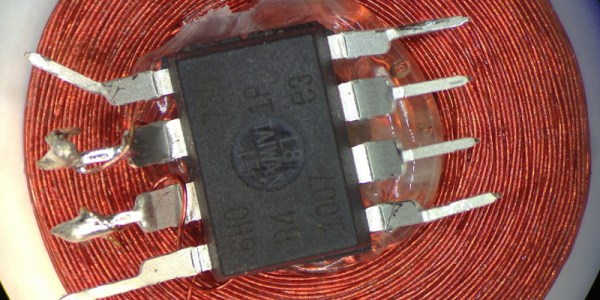Distortion pedals and overdrive effects usually have a bunch of lovely transistors or op-amps inside and lots of knobs and dials to tweak the sound to your personal taste. However, it’s possible to get some crunchiness in your audio signal without all that fuss, as [Simon Hutchinson] demonstrates with his $2 “analog saturation box”.
The effect is achieved quite simply by installing a pair of diodes in opposite orientations, connected from the signal path to ground. This configuration is also known as wiring diodes in “anti-parallel.” When the signal increases in amplitude beyond the diode’s forward voltage, the diode conducts and the signal’s peak is clipped off, which creates a distorted tone. Since there are two diodes, one in each orientation, both the tops and bottoms of the AC audio signal are clipped in this manner.
The amount of clipping is highly dependent on the diodes chosen and the strength of the signal you’re working with. Silicon diodes clip around 0.7 V, while germanium diodes clip at about 0.3 V, but that doesn’t give you much flexibility. You can work with this to some degree, though. You can up the minimum clipping level by stacking more diodes in series in each direction, or you can put in a potentiometer to vary your signal’s level before it hits the diodes. Really, though, this hard voltage limit is why more commonly, we use active distortion or overdrive effects that have more options for gain and level and such.
[Simon Hutchinson] does an able job of explaining the effect and demonstrates its use with some simple beats. As a passive device, it’s pretty one note—there’s no EQs to mess with the frequency response, and no ability to change anything else about the sound, either. Still, it’s interesting to hear the effect it does have on a signal, and you might just find this is all the distortion you need. If you’d rather go into full-fat distortion though, we’ve covered that too.
Continue reading “Passive Saturation Box Is A Cheap Way To Distort Your Sound”

















